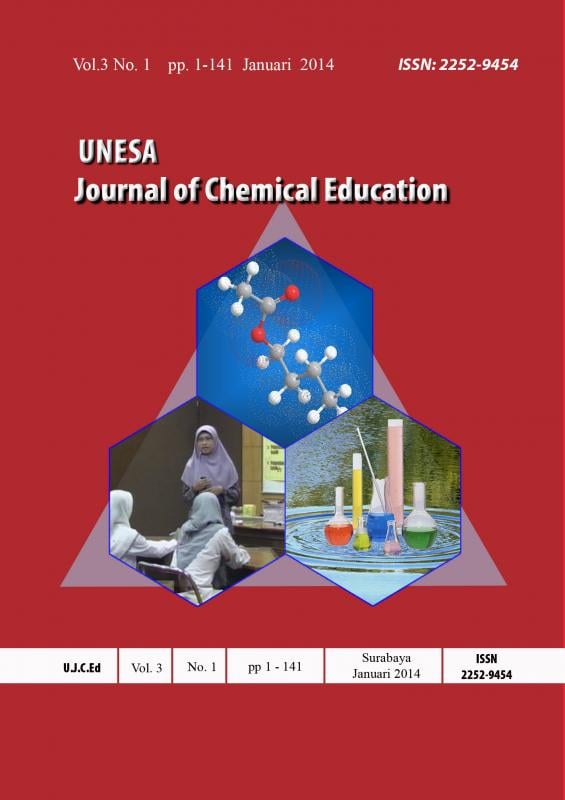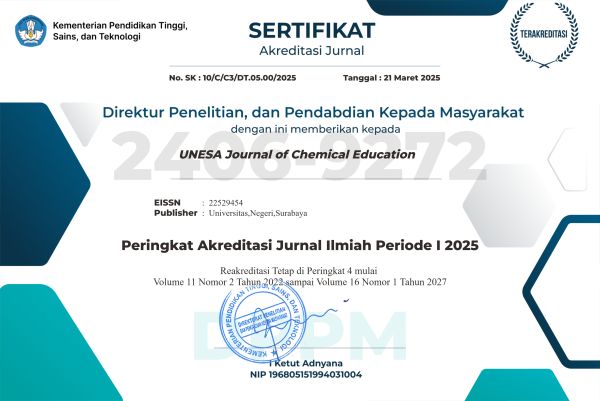DOI:
https://doi.org/10.26740/ujced.v3n1.p%25pAbstract
Tujuan dari penelitian ini adalah untuk mengetahui hubungan antara self-efficacy dengan hasil belajar siswa setelah penerapan pembelajaran menggunakan strategi TANDUR pada materi pokok laju reaksi. Desain penelitian yang digunakan dalam penelitian ini adalah “One-Shot Case Study”. Metode pengumpulan data yang digunakan dalam penelitian ini adalah metode angket yang digunakan untuk memperoleh informasi self-efficacy siswa dan metode tes untuk mengetahui hasil belajar siswa. Analisis penelitian yang digunakan adalah korelasi product moment. Data self-efficacy siswa sebagai variabel X dan hasil belajar sebagai variabel Y. Berdasarkan hasil analisis, harga r hitung sebesar 0,6932 lebih besar dari harga r-teoritik dengan N = 32 pada taraf signifikan 1% sebesar 0,449, sehingga H0 ditolak dan Ha diterima. Sehingga dapat disimpulkan bahwa terdapat hubungan positif antara self-efficacy dengan hasil belajar siswa.
Kata kunci: Self-efficacy, Hasil belajar, Strategi TANDUR, Laju reaksi.
The aim of this study is to know the relationship between self-efficacy and student learning outcomes after applied learning process using TANDUR strategy on reaction rate matter. The research design used in this research is “One-Shot Case Study”. Methods of data collection in this research are questionnaire method used to obtain the information student’s self-efficacy and test method to determine student’s learning outcomes. Research analysis that used is product moment correlation. The data of student’s self-efficacy is symbolized by X variable and learning outcomes as Y variable. Based on analysis result, r count rates 0,6932 is greates than t-theoritic with N = 32 at 1% significant level of 0,449, so H0 is rejected and Ha accepted. It canbe concluded that there is positive correlation between self-efficacy and student learning outcomes.
Key words : Self-efficacy, Learning outcomes, TANDUR strategy, Reaction rate.
Downloads
Downloads
Published
Issue
Section
License
The license terms of the Creative Commons Attribution-NonCommercial 4.0 International (CC BY-NC 4.0) requires attribution to the original creator, permits non-commercial use, and does not allow for the application of legal or technological restrictions on others' use.
 Abstract views: 34
,
Abstract views: 34
, PDF Downloads: 74
PDF Downloads: 74













